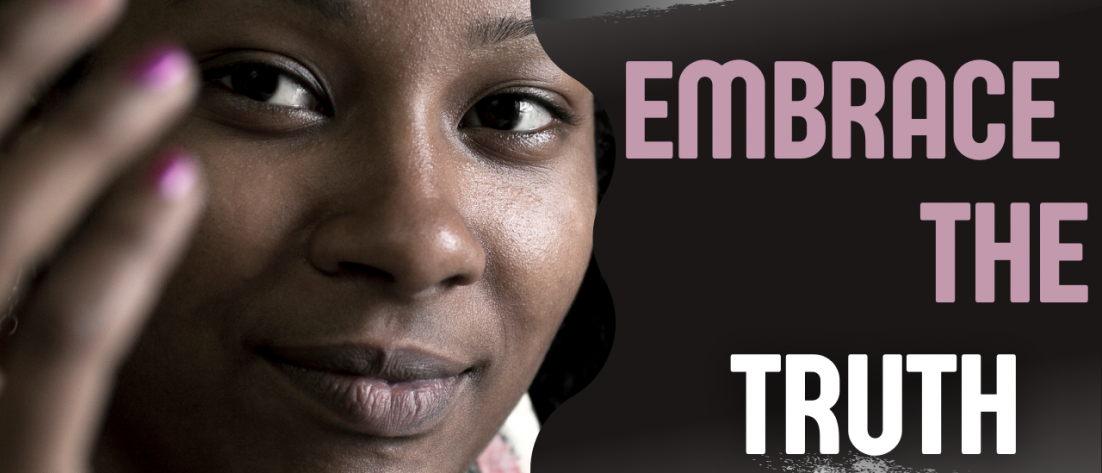I met my guest for this episode a few years ago at a meeting of the We Agnostics AA group in Kansas City. She had been attending meetings at another 12-Step Fellowship, so AA wasn’t a foreign experience. However, an AA group that was specifically tailored to meet the needs of atheists and agnostics was new to her, and as an atheist, she was excited about the opportunity to meet like-minded people in recovery.
What I knew about her prior to recording this episode was gathered from the pieces of her story that she shared in meetings, so I looked forward to getting to know her better. She explained that she prefers to remain anonymous for professional reasons, so out of respect for her need for confidentiality, I won’t use her name as I write about our conversation.
Seeing her at meetings over the years, I always admired her self-confidence and independent spirit; and from talking with her, I learned that it was born from understanding the importance of asserting her humanity, to know who she is, not to run from it, but to embrace it, because that’s where she finds the power.
When I asked about her background, she told me about growing up in a black middle-class family in Springfield, Illinois. Born and raised Catholic, she went to Catholic schools from kindergarten through high school. Her childhood was happy. She was intelligent, always a good student, and from an early age, she loved to spend time in the library to understand what other people were thinking. The most challenging event she had to deal with in her young life was the divorce of her parents. That was difficult and at the time, she wanted to get as far away from her family as she could. This factored into her decision to attend college at Clark Atlanta University.
She thrived at Clark Atlanta, where she pledged the Delta Sigma Theta Sorority, a significant organization that while open to all women, has a membership that primarily consists of black women. The women at Delta Sigma Theta inspired her, and it was a great experience overall.
After Clark Atlanta, she went to Law School at the Thurgood Marshall School of Law in Houston, Texas —another historically black university. She didn’t complete Law School, but while in Texas she went to work for a church with a ministry in the inner city of Houston. She threw herself into this work and loved it. Eventually, she went on to seminary in Kansas City, Missouri, and became a minister for the United Methodist Church.
When she completed her Master of Divinity at the seminary, she gradually began to question her theological beliefs. The divide between what she believed, and the Church’s teachings eventually became too wide to bridge. She no longer believed in Jesus as a personal savior, and she let go of the idea of sin. Needing to think things through, she took some time off from the ministry, and moved to Massachusetts where she was encouraged by a mentor at Amherst to earn her PhD. in Urban Planning.
While at Amherst, she was drinking alcohol more than she had in the past. Largely she thinks, to deal with the stress and rigor of the PhD. program. She also got involved in codependent relationships with men who had problems with addiction to alcohol and other substances, and behaviors.
Having left the church in 2003, she went through a difficult period trying to figure out how to market the skills she acquired as a minister. Returning to Kansas City in 2015, she was coping with a lot of change in her life. She realized that she needed to change her relationship with alcohol and address her struggle with codependency. Involvement in 12-Step programs helped, and to this day she attends meetings for both codependency and alcohol.
Memorable Quotes
To be a womanist is to love myself. Regardless of the cost, regardless of who does or who doesn’t like it. That for me is the heart of it— that love. And when you do that, you’re going to be empowered. You’re going to feel empowered; you’re going to act out of power.
Clark Atlanta is a historically black college, which was a huge difference from what I had grown up in. At school, day to day, I was surrounded by many black youth like myself—that was new for me because I grew up in an environment where I was not surrounded by many black youth, I was surrounded by white youth.
Embracing who I am. That’s about power. I think that in all these addictions and all these things we’re doing in our lives to run away – we’re running away from ourselves. We’re just running away from who we are, what we went through, and we find power in embracing the truth about ourselves.
Podcast: Play in new window | Download



